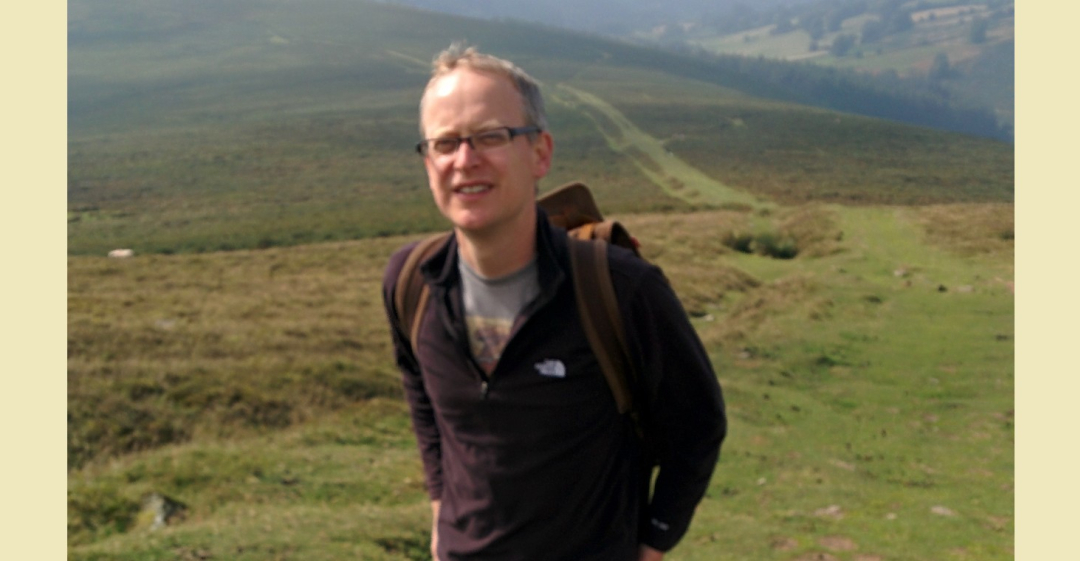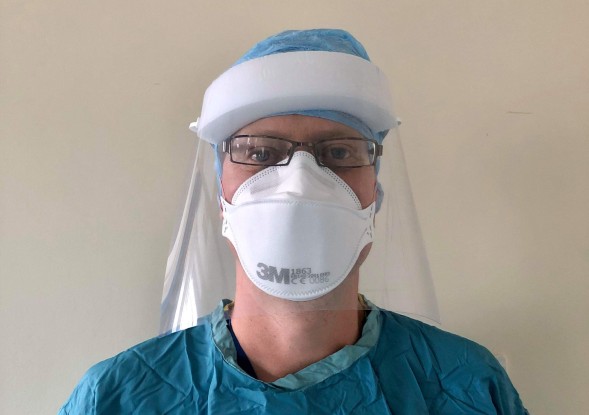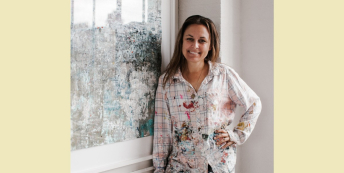“I felt like a small cog in a huge machine.”

Newly Updated
What work were you doing previously?
My last job was for a large investment company based near Cannon Street in the heart of the city of London.
I was involved in producing their fund reports (documents sent out to investors explaining the performance of the investments, etc). It was largely desk-based and involved staring at a computer screen for most of the day.
What are you doing now?
I am currently in the first year of a three-year degree course; eventually, I'll become a nurse (BSc Hons).
Why did you change?
I felt like a small cog in a huge machine.
I wasn't achieving my potential, and I didn't agree with my boss on how to get the work done (she wanted me to work many hours; I didn't). Additionally, having just had two kids, I wanted a career that would make my new family proud.
I decided on nursing as I wanted to do something that made a difference to society in some small way.
I'd been interested for a while in pursuing a career in health care. I'd considered becoming a paramedic but I wanted a career path that would present me with lots of opportunities and the variety that had been lacking in my previous desk-based work. Additionally, my wife is a nurse and I'd been able to see all the opportunities (and pitfalls) that she's experienced.
I'd also had an overwhelmingly positive experience working in nursing homes for the elderly. This made me realise that I was on the right path to a fulfilling career.
When was the moment you decided to make the change?
My boss called me in for a meeting and discussed my reduced performance.
I explained that I felt quite disillusioned and unfulfilled by my role. It was from this moment that I knew I had to do something.
Also, following the birth of my first child, I realised there was more to life than sitting in front of a screen.
Are you happy with the change?
YES! It's easily the best decision I have ever made.
So many positives have come from it, although it's been very challenging.
What do you miss and what don't you miss?
I miss some of my friends at the office.
And I miss the nice comfortable desk and the free luxury tea and coffee (I also miss the occasional bacon buttie).
But the main thing I miss is my cycle ride to and from the station each day: my waistline attests to that!
How did you go about making the shift?
We planned for about a year beforehand, and put savings in place to cover us for a few months.
Our home in the south east of England was in negative equity so we couldn't sell it. We decided to let this house; much to our surprise it rented out within two days of us vacating. We had a holiday in the Forest of Dean and liked the area, so we focused on finding somewhere to rent in that area. The rent we pay for a large detached house is the same as the rent we receive for our pokey terraced house in the South East.
My wife, who's a nurse, applied for jobs in the Ross area and had interviews prior to us moving. We had to check out nurseries for our kids, look at potential rental properties and attend interviews, all in the space of one very hectic weekend.
What didn't go well? What 'wrong turns' did you take?
My wife's first job after our relocation turned out to be quite a long way from where we were based.
It also finished very late, so I'd be looking after the kids, tired; she'd arrive in from work after midnight; the kids would then wake up at 6 a.m. the next morning. This was quite hard work! Otherwise it's been mostly good – no horror stories (yet).
How did you handle your finances to make your change possible?
Planning, planning, planning!
I was in the fortunate position of having saved some money while at work, in the company share options scheme; this matured just before we moved.
We have cut back in all areas, and all frivolities have been banished. No ready meals. We bought coffee flasks, which saved loads on posh coffee-shop coffee and paid for themselves within a week. We fixed things if they broke, rather than buying new. We sold stuff on eBay (£500 made in the past two months). It was just about going back to basics and concentrating on the things that really matter.
It has been such a learning experience – once I am earning a wage, I'm hopeful we'll be able to save most of it and eventually retire early!
I am fortunate to be taking a course which includes a meagre bursary and paid fees. And it leads on to almost guaranteed work. Money is tight but we have no debt, except for a mortgage, so this really helps.
What was the most difficult thing about changing?
Worrying about whether I'd made the right decision.
But this didn't last for long. I see the kids playing in the fresh air in a large garden and I know we've made the best decision of our lives.
What help did you get?
Since starting my nursing degree I have had a bursary as well as tuition fees covered. Apart from that it's been a matter of getting on with it and dealing with problems and issues along the way.
My wife is able to work flexibly, which has been a tremendous help; we share childcare and domestic responsibilities far more equally than most couples we know, which really frees up a lot of time and allows me to have a closer relationship with my children.
What have you learnt in the process?
I have learnt so much about myself and what is truly important.
Our household expenditure has reduced drastically while our happiness levels have skyrocketed. Going 'back to basics' is one of the best things we have ever done. We've learnt to rely on ourselves and to be more resourceful.
I've also learnt to ignore the 'naysayers' and how daft many people's lives of constant work combined with 'conspicuous consumption' really are. Why spend years of your life chained to a desk combined with the reward of spending money at the end of the day? Why not spend less and work fewer hours?
What do you wish you'd done differently?
I wish I'd changed jobs and location sooner.
But I also realise that I can't spend my time regretting decisions. Thinking back it seems that my time in my old job was largely spent 'treading water'; the best thing that came from it was knowledge of the investment world, ready to be put into action once I'm in paid work again.
I've learnt from my previous lifestyle mistakes and am taking these lessons forward, as values which I will hopefully pass on to my children.
What would you advise others to do in the same situation?
I’d say to go for it!
Don’t waste time worrying about making the change. Make sure you are organised, put everything in place over the course of six months to a year (once you have made the decision to change career it makes dealing with those annoying characters at work so much easier).
Look into working fewer hours and having less money. If you can’t afford this where you currently live, move to a cheaper place.
What resources would you recommend to others?
One of the best and most reliable resources is yourself.
Make use of immediate family and friends if you need someone to look after the kids while you are away sorting things out. Otherwise the internet is your friend. Sell things through eBay and use Skype to keep in touch for free.
Look at your local (or not so local) further education colleges for courses that could get you moving in the right direction. Hopefully your partner will be on side. My wife has been a rock in supporting me in this long-term change.
We caught up with Nick to see how his shift was working out, roughly six years on. Here's what he's been up to, and the biggest lessons he's learned.

What's changed for you in your career since we first published your story?
I've become a registered nurse having completed my nursing degree.
I've met lots of inspiring people, moved house since gaining work and now live in the lively Herefordshire countryside. My kids have grown and now attend a lovely local school.
How do you feel about your work now?
I'd definitely recommend coming into the nursing profession, but be aware it is hard work at times and not very well paid.
But in exchange for that you'll have a flexible work life with all sorts of opportunities, and get a rewarding life experience thrown in.
Covid brought with it unexpected pressures and placed challenges on all of our shoulders. It was challenging and if I'm honest, quite stressful at times but I feel I dealt with it all fairly well and still enjoy my work.
What challenges have you come up against since making your shift, and how exactly have you dealt with them?
While challenging, Covid came at a good time, in that I’d been a qualified nurse for a couple of years.
I had some experience to help get me through. I can't imagine how tough it must have been for the students and newly qualified nurses coming through in the middle of it.
I've had mostly very supportive colleagues who are very knowledgeable and happy to answer even the most obvious questions. It was tough working full time with my family but my new role makes it easier to take part time hours and I can still pick up the odd shift for overtime if need be.
How is the financial side of things panning out, and is this what you'd expected?
Finances have been ok.
Nursing is not particularly money-focussed but it allows you to work anywhere and there are so many different nursing roles to choose from.
I've reduced my hours to spend more time with my family which is working out well. I can always pick up overtime shifts if I like (although the reality is this proves rare!).
I feel that student life prior to becoming a nurse prepared me for a frugal life and made me appreciate the simple things a lot more than previously.
What have you learned, since making your shift?
Loads.
I never dreamed I'd be an accomplished nurse and I feel to list things would take up too much space.
I guess I've learned to appreciate the simple things more, life is short so make the most of it. I see people each day who are facing difficult times in their lives and this really makes me appreciate having a healthy happy family.
What lessons could you take from Nick's story to use in your own career change? Let us know in the comments below.



